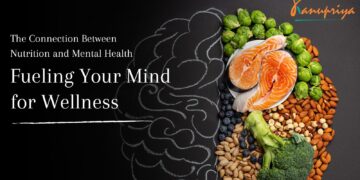Before fully grasping the best anti-inflammatory food, you must know everything about inflammation. There are two types of inflammation: 1. External Inflammation, 2. Internal inflammation.
The external inflammation is visible; we can cure it by using ornaments and taking precautions to prevent it from spreading. But what about internal inflammation? Internal Inflammation occurs naturally as part of the body’s immune response. When your body is internally affected by infection or injury, it sends inflammatory cells to rescue. This results in swelling, redness, and sometimes pain which is completely normal as long as the body stays in control.
When internal inflammation lingers and stays for an extended period, this is where you need to take action to prevent it. This chronic inflammation means your body is always in a state of high alert. It can give rise to some significant health issues, including heart disease, diabetes, thyroid, Alzheimer’s disease, or cancer.
Fortunately, controlling inflammation levels is somewhat in our hands. The risk of inflammation can be increased by smoking, being overweight or obese, and drinking excessively. You can control inflammation levels by changing your diet and lifestyle without taking medication.
How an Anti-Inflammatory Diet Works to Beat Diabetes
No specific diet plan outlines precisely what, when and which portion to eat. Instead, the anti-inflammatory diet must include meals with an adequate amount of vitamins and minerals to get relief from inflammation.
Ideally, you should eat eight to nine servings of fruits and vegetables each day, which is impossible for everyone. Doctors recommend eating at least 2 hours a day to be healthy. Limit the intake of red meat, dairy products, carbohydrates, and processed food intake. Include the omega-3 fatty acids-rich food in your meal, such as salmon, flax seeds, eggs, mustard seeds, soybean, walnuts, etc.
Exclude food from meals that cause inflammation as the food with the potential to lead to inflammation is considered unhealthy and may cause several diseases.
List of Food to Include in an Anti-inflammatory Diet
Here is a list of healthy anti-inflammatory diets that can help lower inflammation :
- Fresh fruits include watermelon, pineapple, cherries, avocado, bananas, apples, peaches, tomatoes, and pomegranates.
- Dry fruits such as plums, walnuts, unsalted almonds, and pistachios.
- Plant-based proteins include tofu, lentils, and chickpeas.
- Berries include blueberries, cranberries, raspberries, strawberries, and mulberries.
- Green leafy vegetables, especially broccoli, spinach, sprouts, and cauliflower.
- Whole grains, including barley, oatmeal, corn, and whole-wheat bread.
- Monounsaturated fats (avocados, olive oil, nuts, nut butter, seeds).
- Polyunsaturated omega-3 fats (walnuts, flaxseeds, chia seeds, and aquatic foods).
- Seasonings like ginger and turmeric.
- Beverages like tea and coffee.
- Dark chocolate with at least 70% or higher cocoa solids.
Foods to limit during inflammation:
- Beverages like soda, juice drinks, iced tea
- Refined carbohydrate foods such as white bread, pasta, rice
- Fried foods
- Processed meat with high fat, such as bacon, sausage, and hot dogs
- Saturated fats including full-fat dairy products made of cream and butter, partially hydrogenated oils, meat and poultry
- Excess amount of alcohol
In addition to diet, other factors, such as exercise, stress management, and sleep may help reduce inflammation.
Health Disease that May Occur by not Following an Anti-Inflammatory Diet
- Type 2 Diabetes
- Pulmonary Disease
- Thyroid
- Stroke
- Cancer, including breast cancer and collateral cancer
- Autoimmune Disorder
- Alzheimer’s disease
If you are feeling inflammation for an extended period, you should go for a health checkup at the best diagnostic centre. This helps to diagnose the disease and take medication accordingly.
Are There Any Disadvantages to an Anti-Inflammatory Diet?
There are no significant disadvantages to following an anti-inflammatory diet. There may be some learning facts that every person needs to know about which food should be included in the anti-inflammation diet and which should be avoided.
Whereas we should avoid food that causes inflammation as inflammatory food is considered unhealthy. You need to plan your diet accordingly to live a healthy lifestyle.
Conclusion
Even a low level of inflammation for an extended period can cause diseases such as diabetes, stress, thyroid, etc. Take the necessary precautions to keep inflammation in check by adopting a healthy diet and changing your lifestyle. If you have been facing inflammatory issues for a long time, consult a doctor or take necessary health checkups to diagnose the cause.








